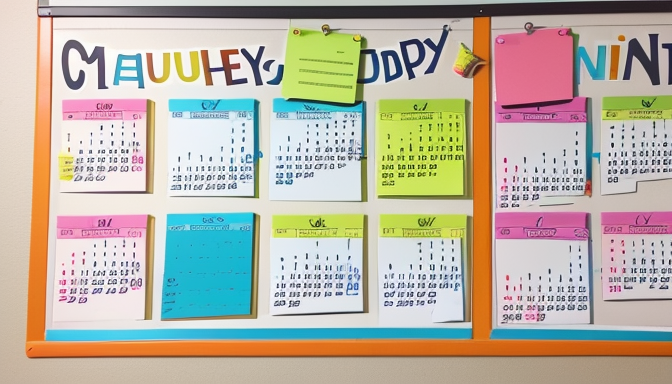Have you ever wondered why some people seem to achieve their fitness goals effortlessly while others struggle? The answer often lies in one simple word: consistency. Just like a river carves its way through rock not by force, but by persistence, your fitness journey requires a steady commitment to your routine. When you make working out and healthy eating a part of your daily life, those small, consistent actions add up to significant results over time.
Think about it: if you hit the gym once in a blue moon, you’re unlikely to see the same results as someone who shows up regularly. Establishing a routine creates a solid foundation for success. It’s not just about going hard for a week and then taking a month off; it’s about making fitness a lifestyle. When you consistently engage in physical activity and plan your meals, you set yourself up for sustainable health outcomes. It’s like building a house: without a strong foundation, the structure is bound to crumble.
Moreover, consistency breeds confidence. Every workout completed and every healthy meal consumed reinforces your commitment, making you feel more capable and motivated to push through challenges. It’s a snowball effect; the more consistent you are, the more you want to remain consistent. So, if you’re looking to unlock the secret to fitness success, remember that it’s not just about intensity, but rather about staying in the game day in and day out.
The Role of Routine in Fitness
Establishing a fitness routine is crucial for long-term success. Think of it like building a house; without a solid foundation, everything else is at risk of crumbling. When you commit to a consistent workout schedule and meal planning, you create a strong structure that supports your health goals. Regular habits not only enhance your physical abilities but also instill a sense of discipline and purpose in your daily life. Just imagine waking up each morning, knowing exactly what workout awaits you—this predictability can be incredibly empowering!
Moreover, having a routine helps to eliminate decision fatigue. When you know what to do, you save mental energy for other important choices in your day. It’s like having a roadmap; you’re less likely to get lost when you have clear directions. For example, if your workout plan includes a mix of strength training, cardio, and flexibility exercises, you can easily switch between them without overthinking your next move.
To illustrate how a structured routine can lead to success, consider the following table that outlines the benefits of consistency in workouts:
| Benefit | Description |
|---|---|
| Improved Performance | Regular workouts enhance strength, endurance, and overall fitness levels. |
| Increased Motivation | Consistent routines lead to small wins, boosting your confidence and drive. |
| Healthier Habits | Establishing a routine can promote better eating and sleeping habits. |
In conclusion, the role of routine in fitness cannot be overstated. It serves as the backbone of your health journey, providing structure and stability. So, why not take the plunge and create a routine that works for you? Remember, consistency is the key that unlocks the door to achieving your fitness goals!

Setting Realistic Goals
When it comes to fitness, setting realistic goals is like laying the groundwork for a sturdy house. If you don’t have a solid foundation, everything else can crumble. Think about it: have you ever tried to achieve something that felt way out of reach? It’s frustrating, right? That’s why it’s crucial to establish fitness targets that are not only challenging but also achievable.
Start by evaluating your current fitness level. Are you a beginner, or do you have some experience under your belt? Understanding where you stand allows you to set goals that make sense. For example, if you’re just starting out, aiming to run a marathon in a month might be a bit much. Instead, consider setting a goal to walk 30 minutes a day or to complete a 5K in a few months. This way, you build momentum and confidence as you progress.
Another key aspect is to break your larger goals into smaller, manageable milestones. This technique not only makes your goals feel less daunting but also provides a sense of accomplishment along the way. For instance, if your ultimate aim is to lose 20 pounds, celebrate smaller victories like losing the first 5 pounds or fitting into a pair of jeans you haven’t worn in years. Each tiny win fuels your motivation and keeps you on track.
To help visualize your goals, consider creating a goal-setting table:
| Goal | Timeline | Milestones |
|---|---|---|
| Lose 20 pounds | 6 months | 5 pounds, 10 pounds, 15 pounds |
| Run a 5K | 3 months | Walk 1 mile, jog 1 mile, run 3 miles |
Remember, the journey to fitness is a marathon, not a sprint. By setting realistic goals, you not only pave the way for success but also create a sustainable path that keeps you engaged and excited. So, what are you waiting for? Grab a pen and start mapping out your fitness journey today!
Tracking Progress Effectively
Tracking your progress is like having a personal GPS on your fitness journey. It’s essential for staying on course and making sure you’re heading in the right direction. Without proper tracking, it’s easy to feel lost or discouraged, especially when the results aren’t as visible as you’d like them to be. So, how can you effectively monitor your fitness achievements? Let’s dive into some practical methods that can keep you motivated and accountable!
First off, consider keeping a fitness journal. This can be a simple notebook or a digital app where you jot down your workouts, meals, and how you feel each day. By writing things down, you create a tangible record of your efforts. Plus, it’s incredibly satisfying to look back and see how far you’ve come! You might even want to include:
- Workout types (cardio, strength training, etc.)
- Duration of each session
- Intensity levels (how hard you pushed yourself)
- Nutrition (what you ate and how it made you feel)
Another effective method is using technology. Fitness trackers and apps can provide real-time data on your activity levels, heart rate, and even sleep patterns. These tools not only help you stay consistent but also offer insights into your progress over time. Imagine receiving notifications that remind you to move or celebrate a milestone—it’s like having a cheerleader in your pocket!
Lastly, regular assessments are crucial. Set aside time every few weeks to evaluate your progress. This could be through body measurements, fitness tests, or simply reflecting on how you feel. By assessing your achievements, you can adjust your strategies and continue to challenge yourself. Remember, the journey to fitness is not just about the destination; it’s about the growth along the way!

Overcoming Obstacles to Consistency
Embarking on a fitness journey is like setting sail on an adventurous voyage; however, it’s not always smooth sailing. You might encounter stormy seas that threaten to throw you off course. These obstacles can come in various forms, such as a hectic schedule, lack of motivation, or even injuries. But fear not! Understanding these challenges and having a plan can keep you on track.
First off, let’s talk about the time crunch. Life can get busy, and squeezing in workouts might feel impossible. But here’s a thought: why not treat your workouts like appointments? Schedule them in your calendar, just like you would a meeting or a coffee date. This way, you’re less likely to skip them. Even short, effective workouts can make a difference—think of them as the espresso shots of fitness!
Next up is motivation, which can sometimes feel like a fickle friend. It’s common to feel pumped one day and completely unmotivated the next. To combat this, try finding a workout buddy. Exercising with someone can turn a mundane routine into a fun social event. Plus, you can hold each other accountable. If you’re both committed, it’s much harder to bail on a session.
And then there’s the dreaded injury. It can be a real buzzkill when you’re making progress. But remember, rest is just as vital as the workout itself. Listen to your body and take the time you need to heal. You can still stay active by engaging in low-impact activities, like swimming or yoga, while you recover.
In summary, while obstacles are part of the journey, they don’t have to derail your progress. By planning ahead, staying social, and listening to your body, you can maintain your consistency and keep moving toward your fitness goals. So, the next time you face a hurdle, just think of it as another challenge to conquer!
The Psychological Benefits of Consistency
When we talk about fitness, most people immediately think of physical transformations, like losing weight or building muscle. But what about the psychological benefits? Consistency in your fitness routine can be a game-changer for your mental health. Imagine waking up every day knowing exactly what you’re going to do for your workout. That sense of routine can create a powerful psychological anchor in your life.
Engaging in regular physical activity not only boosts your mood but also helps in reducing stress. When you consistently exercise, your body releases endorphins, those magical little hormones that make you feel good. It’s like having a natural high that you can tap into whenever you need a lift. Plus, sticking to a routine can give you a sense of control in a world that often feels chaotic. Think of it as your personal sanctuary, a time carved out just for you.
Moreover, consistency fosters a sense of accomplishment. Every time you hit a milestone—whether it’s completing a workout or reaching a fitness goal—your brain releases dopamine, the feel-good neurotransmitter. This creates a positive feedback loop, encouraging you to keep going. It’s like planting seeds in a garden; with regular care and attention, you’ll eventually see the fruits of your labor. And let’s be honest, who doesn’t love that feeling of achievement?
However, the journey isn’t always smooth. Life throws curveballs, and maintaining consistency can be challenging. But overcoming these obstacles can lead to even greater psychological resilience. When you push through tough times and stick to your routine, you build mental strength, which can spill over into other areas of your life. So, the next time you feel like skipping a workout, remember that each step you take is not just about physical fitness—it’s about nurturing your mind and spirit.
Frequently Asked Questions
- Why is consistency important in fitness?
Consistency is the backbone of any successful fitness journey. Just like a river carves its way through rock over time, consistent efforts in workouts and nutrition lead to sustainable results. It transforms fleeting motivation into lasting habits that help you achieve your health goals.
- How can I establish a fitness routine?
Creating a fitness routine is like building a house; it requires a solid foundation. Start small by scheduling specific workout times each week and gradually increase intensity. Incorporate meal planning into your routine to ensure you fuel your body right. Remember, the key is to make it enjoyable and manageable!
- What are realistic fitness goals?
Realistic goals are the stepping stones to success. Instead of aiming to lose 20 pounds in a month, try setting a goal to lose 1-2 pounds a week. This approach not only keeps you motivated but also fosters a sense of achievement that propels you forward.
- How do I track my fitness progress?
Tracking progress can be as simple as keeping a journal or using apps. Consider measuring your workouts, taking progress photos, or recording your weight. Regular assessments help you stay focused and make necessary adjustments to your strategies!
- What obstacles might I face in maintaining consistency?
Obstacles are part of the journey! Common challenges include time constraints, lack of motivation, or even injuries. The trick is to anticipate these hurdles and have strategies in place, like scheduling workouts or finding a workout buddy to keep you accountable.
- What are the psychological benefits of consistency?
Consistency in fitness not only builds physical strength but also boosts mental health. Regular exercise can enhance your mood, reduce stress, and provide a sense of accomplishment. It’s like a mental reset button that can transform your overall well-being!

